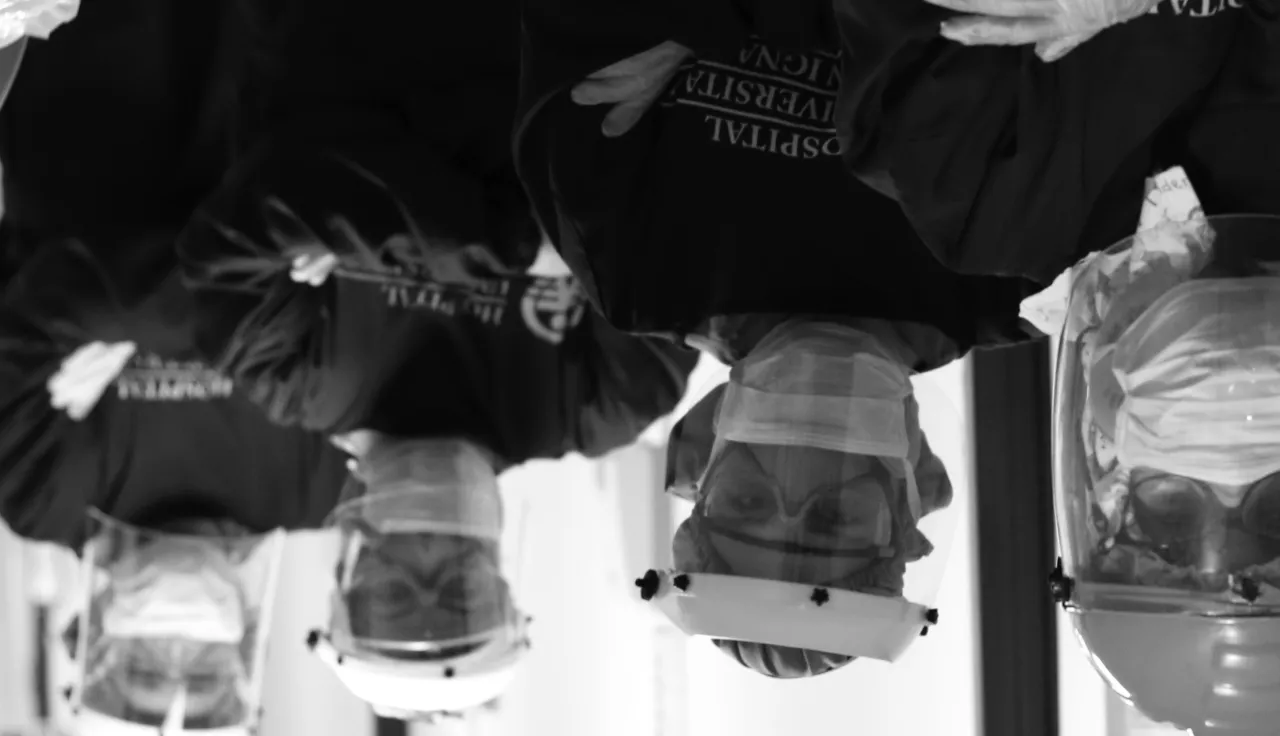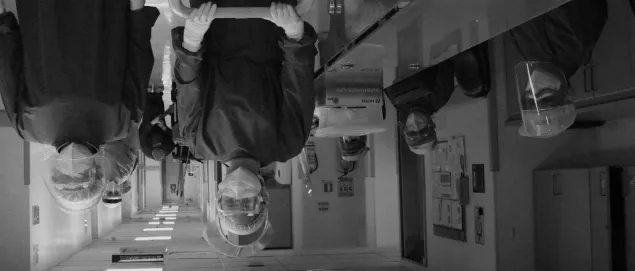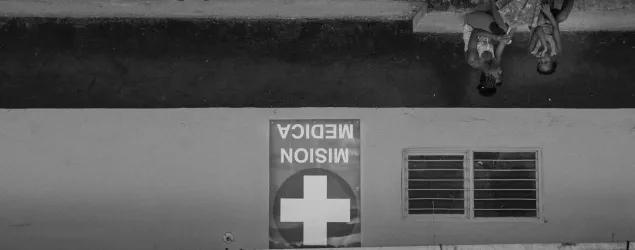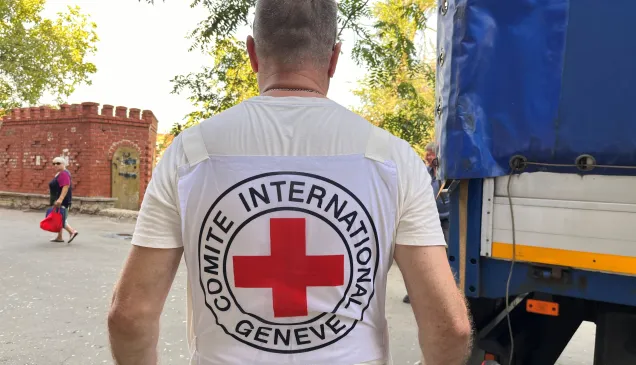The world is upside down: A campaign promoting respect for health care in Colombia

According to figures from Colombia’s National Health-Care Committee, between 1 January and 30 September 2020, there were 242 reports of attacks on health-care workers, facilities and vehicles in the country, the highest figure on record in 24 years. In 52% of cases, those allegedly responsible for the attacks were patients, relatives or members of the community.
Regardless of who the attacker is, no one could doubt that while there are attacks on health care, the world is upside down.
Violence against health care has risen during the COVID-19 pandemic, and the problem has been further compounded by the addition of new threats, such as stigma and discrimination against health-care workers, breaches of patient confidentiality and attempts to obstruct the passage of ambulances and the delivery of medical supplies.
Around 40% of the attacks reported in the first nine months of the year in Colombia are related to the current pandemic situation.

Norte de Santander, Caquetá and Valle del Cauca are the departments that have recorded the highest number of attacks on health care.
Armed with masks, shields, fluid-resistant gowns and an abundance of vocation and compassion, thousands of people working at health-care centres, clinics and hospitals in cities, towns and rural communities throughout Colombia have been the first to see the devastating consequences of the COVID-19 pandemic which, in less than six months, has claimed over 17,000 lives and infected 562,000 people across the country.
Paradoxically, health-care workers have also been the first to bear the brunt of attacks, rejection and discrimination not only at their place of work but also in supermarkets, at home and on public transport, in the midst of a climate of disinformation that has resulted in the spread of fake news.

A large proportion (52%) of the attacks on health care in Colombia are carried out by civilians.
Reporting cases in Colombia
If you have been the victim of any kind of attack in the course of your duties as a health worker, we encourage you to follow the procedure for reporting such incidents.
1. Notify the incident to the health-care institution.
2. The health-care institution is required to report the case to the relevant health department, using this form.
3. The health departments, together with their regional health-care committees, have an obligation to issue an alert, establish preliminary measures to protect the people affected and monitor the case.
4. The National Health-Care Committee, which reports to the Ministry of Health and is formed by a number of organizations, including the International Committee of the Red Cross (ICRC) and the Colombian Red Cross Society, will then establish further protection measures, if necessary, issue recommendations and provide monitoring.

In 2020, the number of attacks on health care rose to the highest level on record since this data started being collected in Colombia 24 years ago.
"The world is upside down" is a campaign launched by the ICRC, the Colombian Red Cross Society and the Norwegian Red Cross and supported by the Ministry of Health and Social Protection.
We would like to thank our other partners, including San Ignacio Hospital, El Espectador, Casa Editorial El Tiempo, Caracol Radio, Caracol Televisión, JCDecaux, Bogotá Health Department, Fundación Cardioinfantil, Simón Bolívar Hospital (Bogotá) and Engativá Hospital, for their support and The Juju agency for its creative input.
Media contacts
- Lorena Hoyos, Public Relations Officer, ICRC delegation in Colombia
Telephone: +57 310 221 81 33
Email: bhoyosgomez@icrc.org
- Sergio Rojas, External Communicator, Colombian Red Cross Societ
Telephone: +57 320 893 4751
Email: sergio.rojas@cruzrojacolombiana.org



